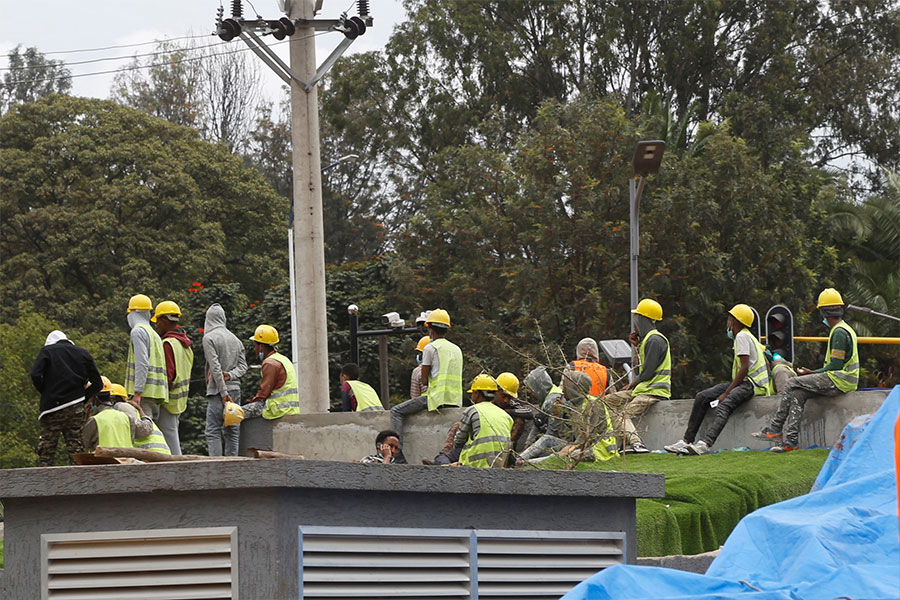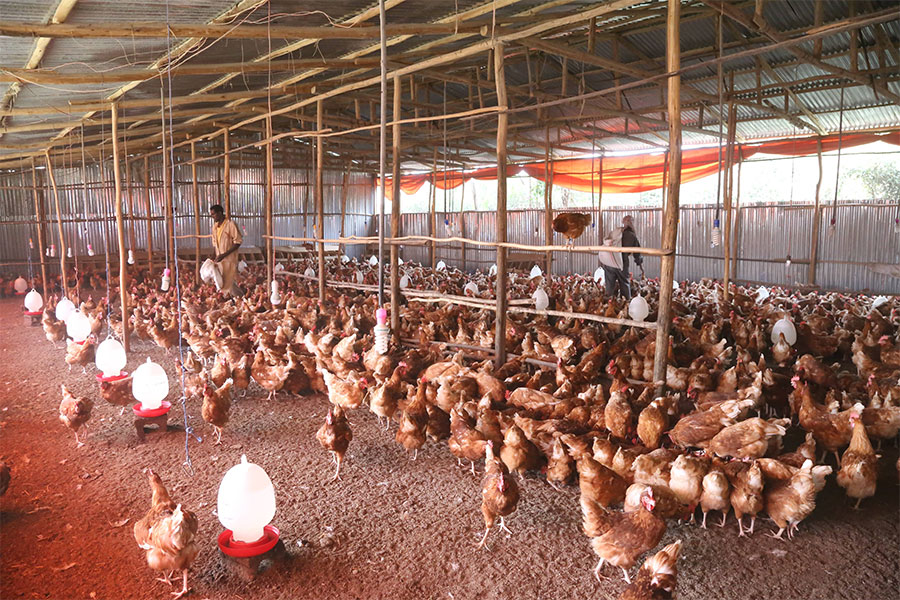
My Opinion | Apr 02,2022
Aug 10 , 2019
By Seble Hailu
Since we all have the potential for both good and evil, it is up to every one of us to resist evil and choose to do good, writes Sebele Hailu (seble.hailu@gmail.com), past president of the Association of Women in Business. She is currently doing her doctoral studies in sociology.
About seven years ago, I had a chance to visit Cape Town, South Africa. It is such a beautiful city that combined the magnificence of nature and technological advancement. However, I saw some community development projects where the urban poor lived and felt disheartened by the depth of their poverty and lifestyle.
Apartheid no longer existed as a system, and yet people were not able to live in the freedom they fought for. I tried to understand the situation in my conversation with the tour guide.
I asked, “Why are these people wandering and not working?”
“They cannot work,” the guide answered. “They do not believe that they are capable of working. I think it’s because of apartheid.”
“But Apartheid was abolished in 1990, right?” I said. “They are no longer in bondage. There is no segregation; they can go to school, work and use the opportunities they have, right?”
“Oh, no, they cannot,” the guide responded. “To use one’s opportunity requires mental energy, but they don’t have it.”
Previously, I thought Nelson Mandela had modeled the right leadership behaviour and had led the country through forgiveness, fought corruption and focused on restoring the country to its rightful dignified place. I didn’t understand why the people chose to remain in bondage.
But the tour guide explained that while racial segregation only existed for about 42 years, the economic and social effects remain. With eight years of Mandela’s leadership, certain progress was made, but profound change takes a long time and needs work on people’s minds to get that result. The ones who came in Mandela’s footsteps did not exactly build on what he had established. Personal interests of exercising power over others and “our time to gain” crept in and corruption prevailed.
That conversation was an eye-opener for me to reflect that change is a slow process, and it requires long-term effort both at the structural and personal levels. I also thought to claim political and economic freedom may not automatically translate to mental freedom at an individual or social level. One of the things that bondage affects is that it sucks out our inner drive and makes us keep the status quo.
I see similar mental bondage in Ethiopia. The recent changes have given us relatively better freedom of speech, the hope of fighting corruption and a focus on establishing systems to advance the country economically, socially and politically. However, since we have been in systems that supported only a selected few, our past keeps on pulling us to a default position of authoritarianism. Our default is going back to the same imprisoned mentality and not using our freedom to move forward. We choose to live by past rhetoric. We find every reason to fight, displace people, kill our neighbour, and hence, fall back into the bondage we are familiar with.
Freedom is defined as “the power or right to act, speak or think as one wants. It also means having free will and being without undue or unjust constraints or enslavement.” A mind under bondage can only think of its subsistence and past tyranny.
In many ways, we are orbiting around this very question of dealing with evil, either within us or in the system. In the past year, when I saw some Ethiopian’s actions and reactions and felt like “all hell broke loose,” I realised that we were operating below our ideals and claims to be “different”, “decent” and “disciplined”. I discovered that it was pure illusion. We all share humanity’s good and evil.
Writing about this reminded me of a story my late professor, Steve Strauss (PhD), told us about a man’s claim to have two dogs in his belly. He was asked which dog was stronger. The man replied, “Oh! The one I feed the most.” This illustrates to me two potentials that live in all of us: good and evil. The question is, which one are we feeding the most?
After acknowledging that we all have the potential for good and evil, then we can be intent on resisting the evil that feeds our mind. This, however, requires rising on a high ground of freedom rather than remaining in familiar slavery. Feeding the good in humanity rather than the evil; feeding forgiveness and letting go rather than sustaining the past pain; feeding peace rather than violence; feeding reconciliation rather than bitterness is required. We have to keep feeding mutuality rather than subjugation, feeding shared power and resources than vindictiveness and stinginess, feeding compromise rather than polarised extremism; feeding inter-connectedness rather than division, and feeding “power with” rather than “power over.” In other words, we need to break the impasse both within and outside us and work toward a makeover.
Exercising freedom requires mental work and discipline. Freedom is not meant to give license to be ill-mannered and trespass others’ boundaries; nor would we feel liberated immediately from rooted bondage. Nelson Mandela said, “For to be free is not merely to cast off one’s chains but to live in a way that respects and enhances the freedom of others.”
To enjoy freedom, we paradoxically need to learn to have the discipline of self-control and choose to have a middle ground to live peacefully with others. To live in freedom requires continually fighting the good fight of transformation, but we must use our freedom to serve one another in love.
Therefore, it is upon us to keep using our freedom to recreate our country and to be who we are meant to be. The Prime Minister’s green initiative is a wonderful example that helps us to use our freedom to collaborate and move forward. Let us sustain it by “greening” our mind!
PUBLISHED ON
Aug 10,2019 [ VOL
20 , NO
1006]


My Opinion | Apr 02,2022

Obituary | Jul 13,2019

Commentaries | Aug 20,2022

Radar | Oct 09,2021

Commentaries | Sep 18,2021

Commentaries | May 24,2025

Fortune News | Jun 12,2021

Fortune News | Sep 11,2020


Viewpoints | Oct 24,2020

My Opinion | 131590 Views | Aug 14,2021

My Opinion | 127946 Views | Aug 21,2021

My Opinion | 125921 Views | Sep 10,2021

My Opinion | 123545 Views | Aug 07,2021

Dec 22 , 2024 . By TIZITA SHEWAFERAW
Charged with transforming colossal state-owned enterprises into modern and competitiv...

Aug 18 , 2024 . By AKSAH ITALO
Although predictable Yonas Zerihun's job in the ride-hailing service is not immune to...

Jul 28 , 2024 . By TIZITA SHEWAFERAW
Unhabitual, perhaps too many, Samuel Gebreyohannes, 38, used to occasionally enjoy a couple of beers at breakfast. However, he recently swit...

Jul 13 , 2024 . By AKSAH ITALO
Investors who rely on tractors, trucks, and field vehicles for commuting, transporting commodities, and f...

Jun 28 , 2025
Meseret Damtie, the assertive auditor general, has never been shy about naming names...

Jun 21 , 2025
A well-worn adage says, “Budget is not destiny, but it is direction.” Examining t...

Jun 14 , 2025
Yet again, the Horn of Africa is bracing for trouble. A region already frayed by wars...

Jun 7 , 2025
Few promises shine brighter in Addis Abeba than the pledge of a roof for every family...

Jun 29 , 2025
Addis Abeba's first rains have coincided with a sweeping rise in private school tuition, prompting the city's education...

Jun 29 , 2025 . By BEZAWIT HULUAGER
Central Bank Governor Mamo Mihretu claimed a bold reconfiguration of monetary policy...

Jun 29 , 2025 . By BEZAWIT HULUAGER
The federal government is betting on a sweeping overhaul of the driver licensing regi...

Jun 29 , 2025 . By NAHOM AYELE
Gadaa Bank has listed 1.2 million shares on the Ethiopian Securities Exchange (ESX),...